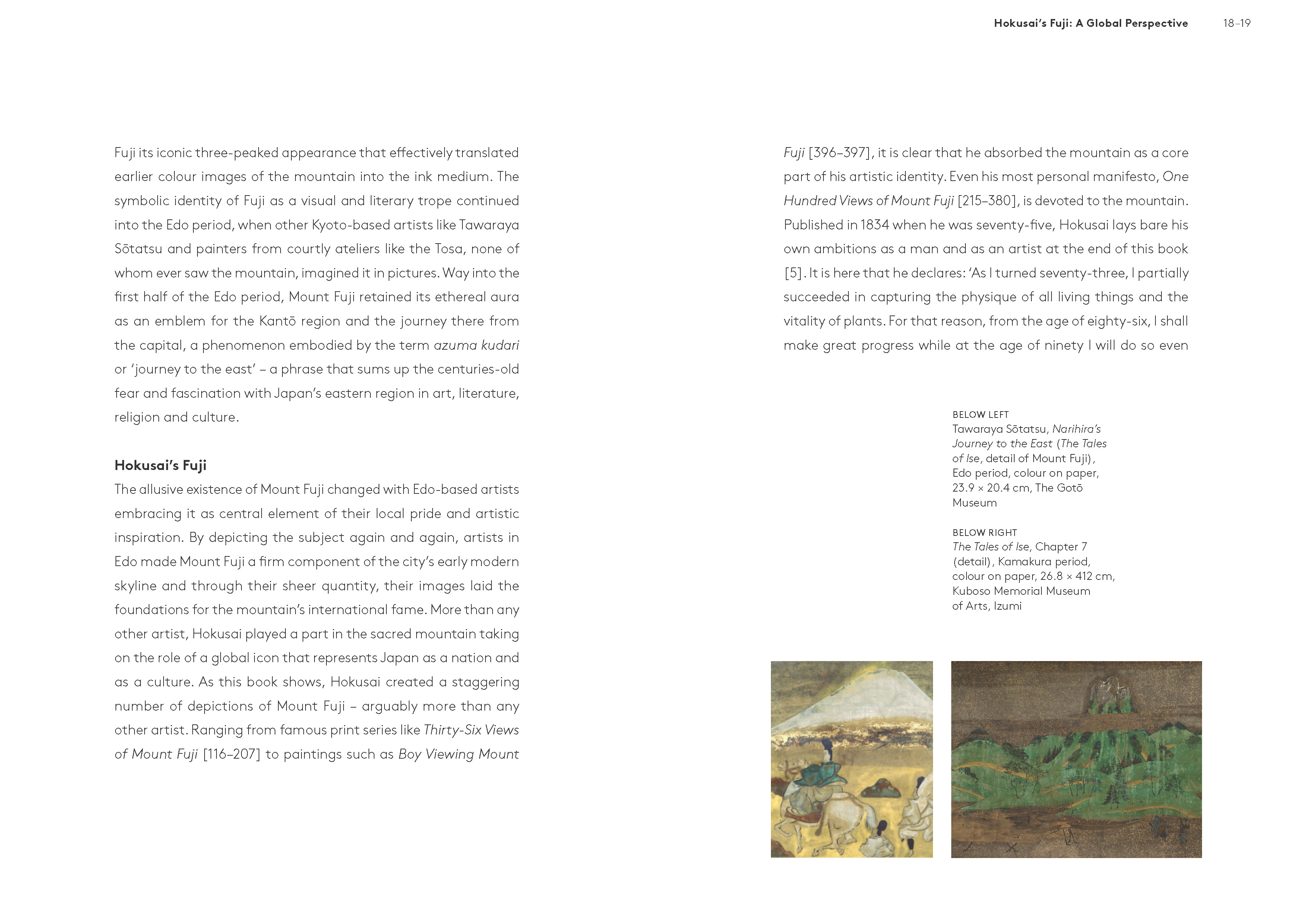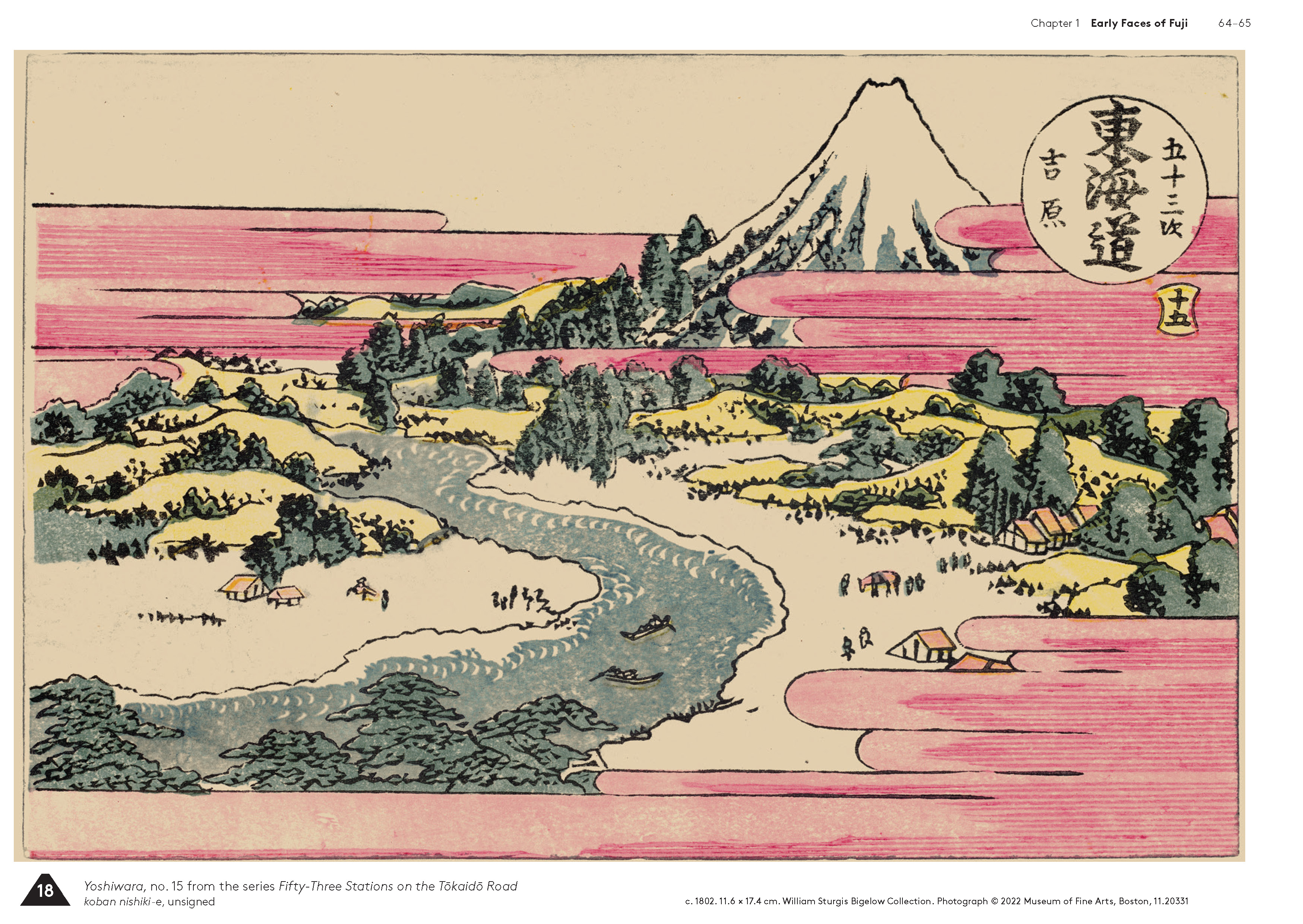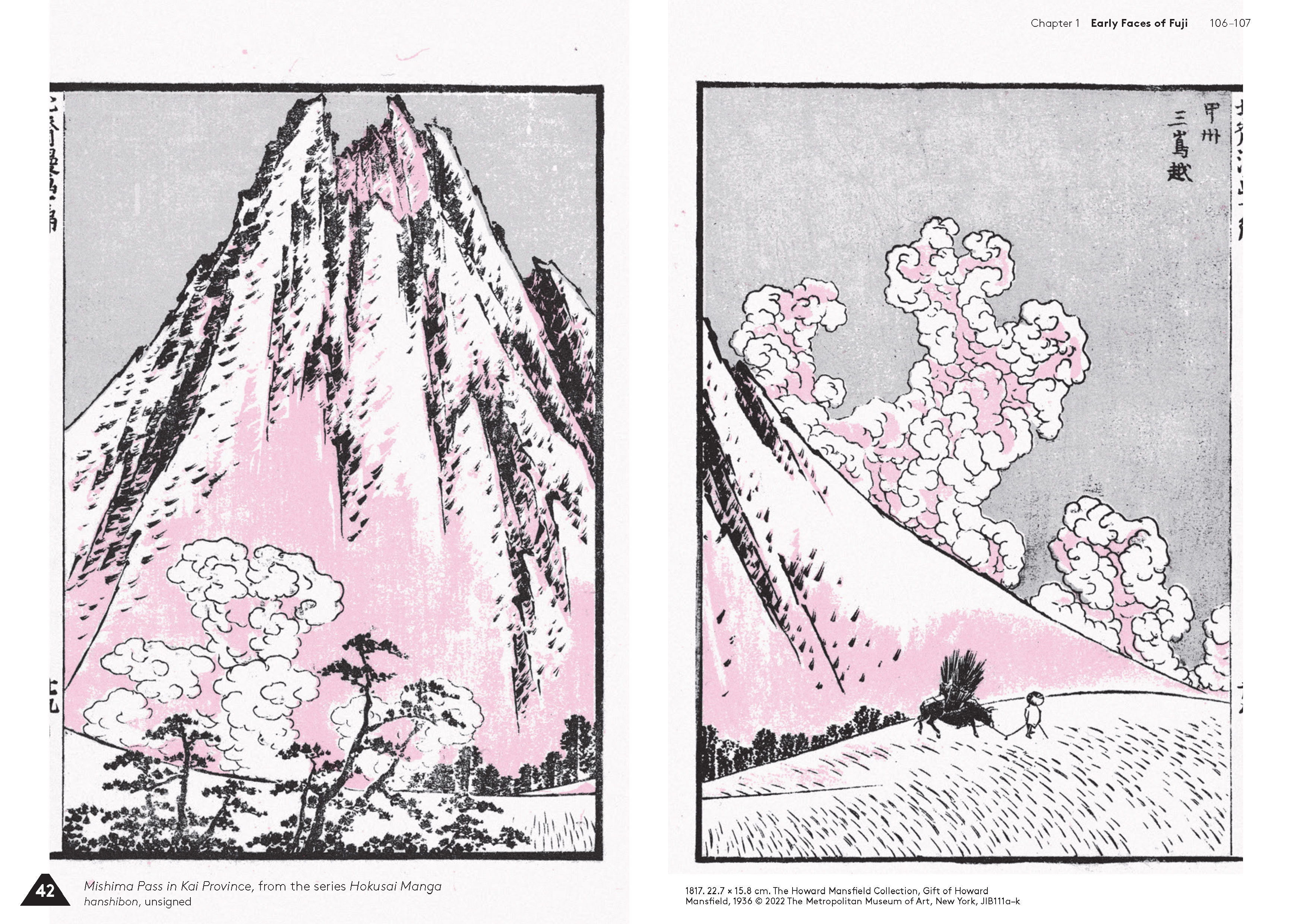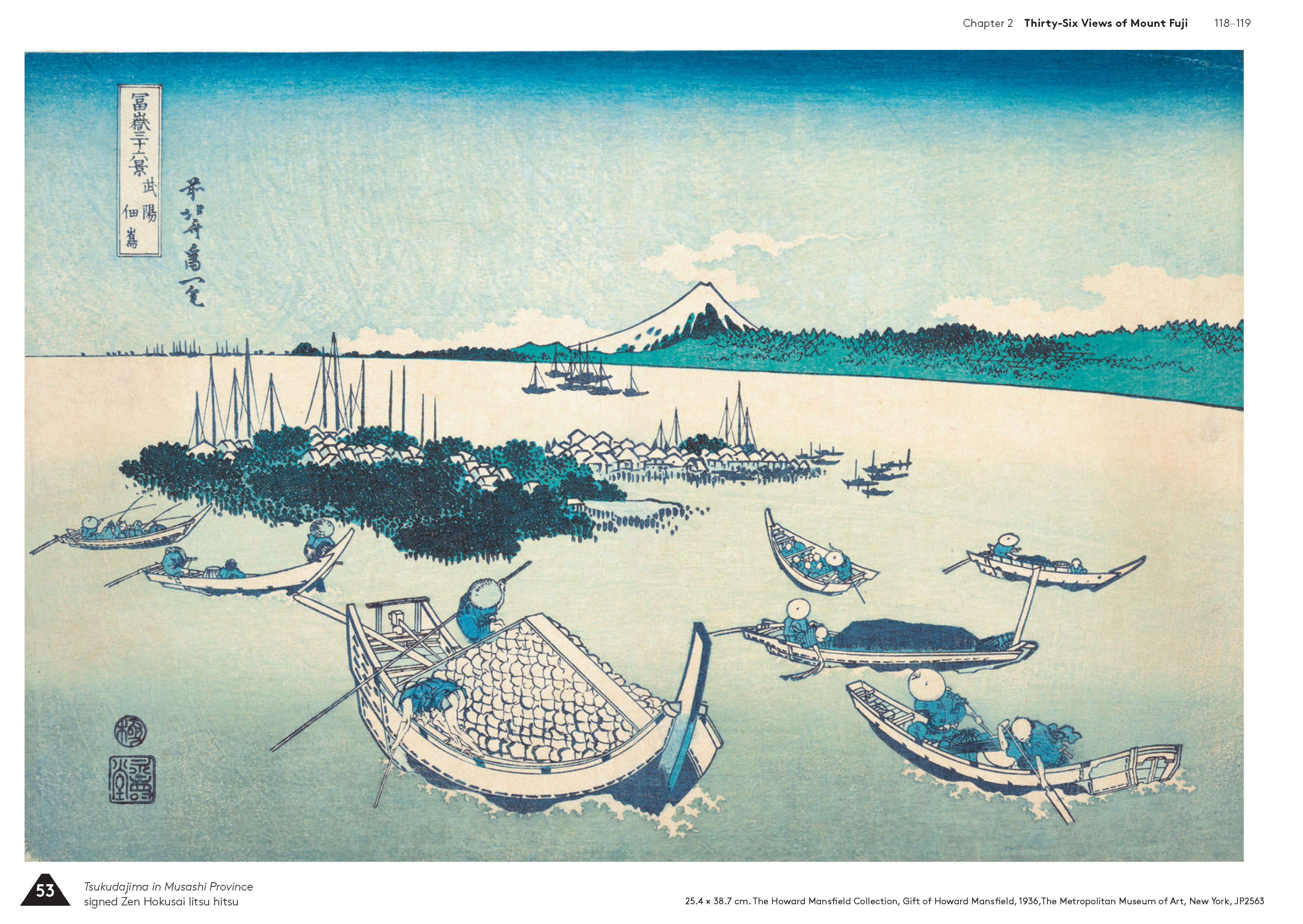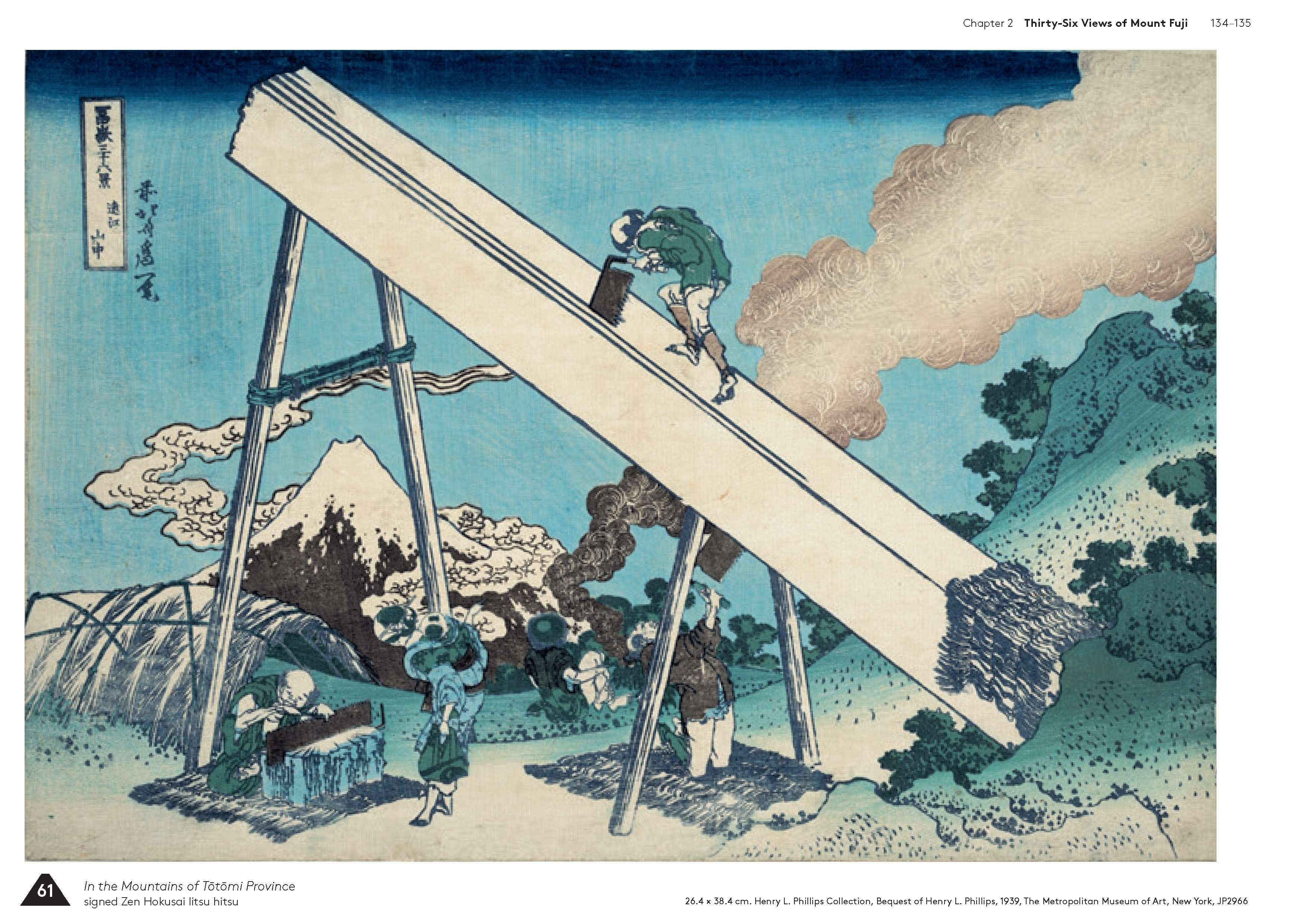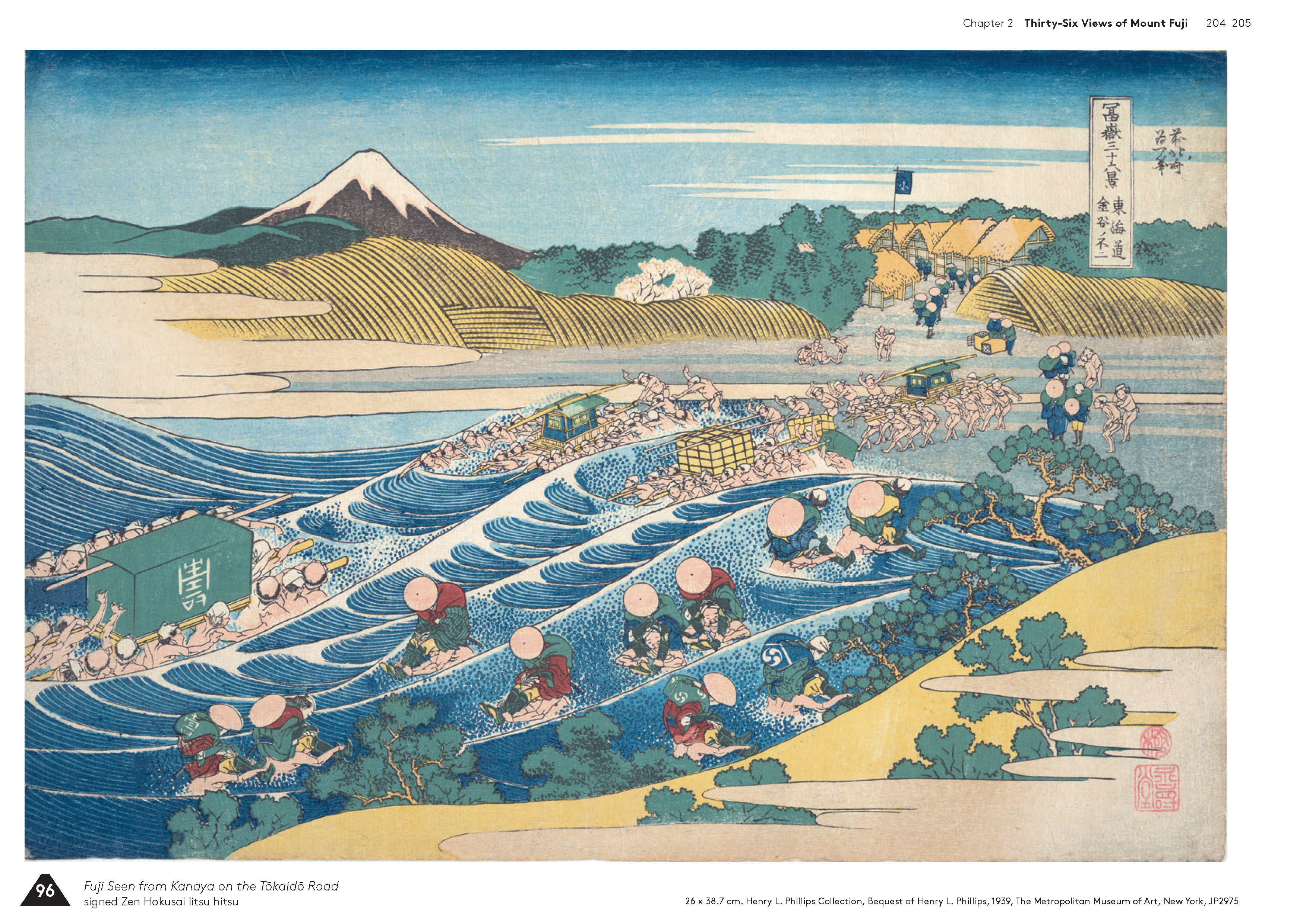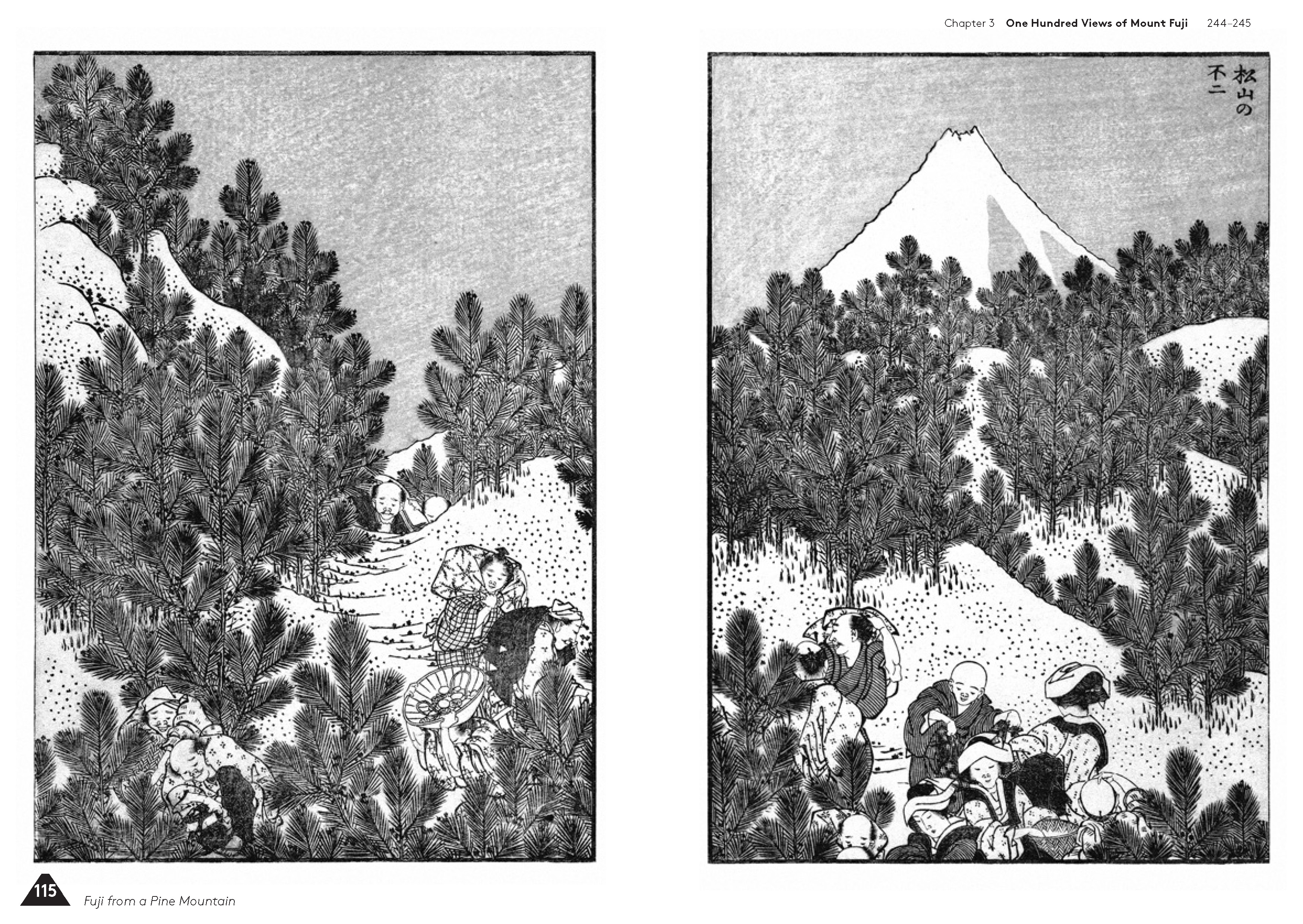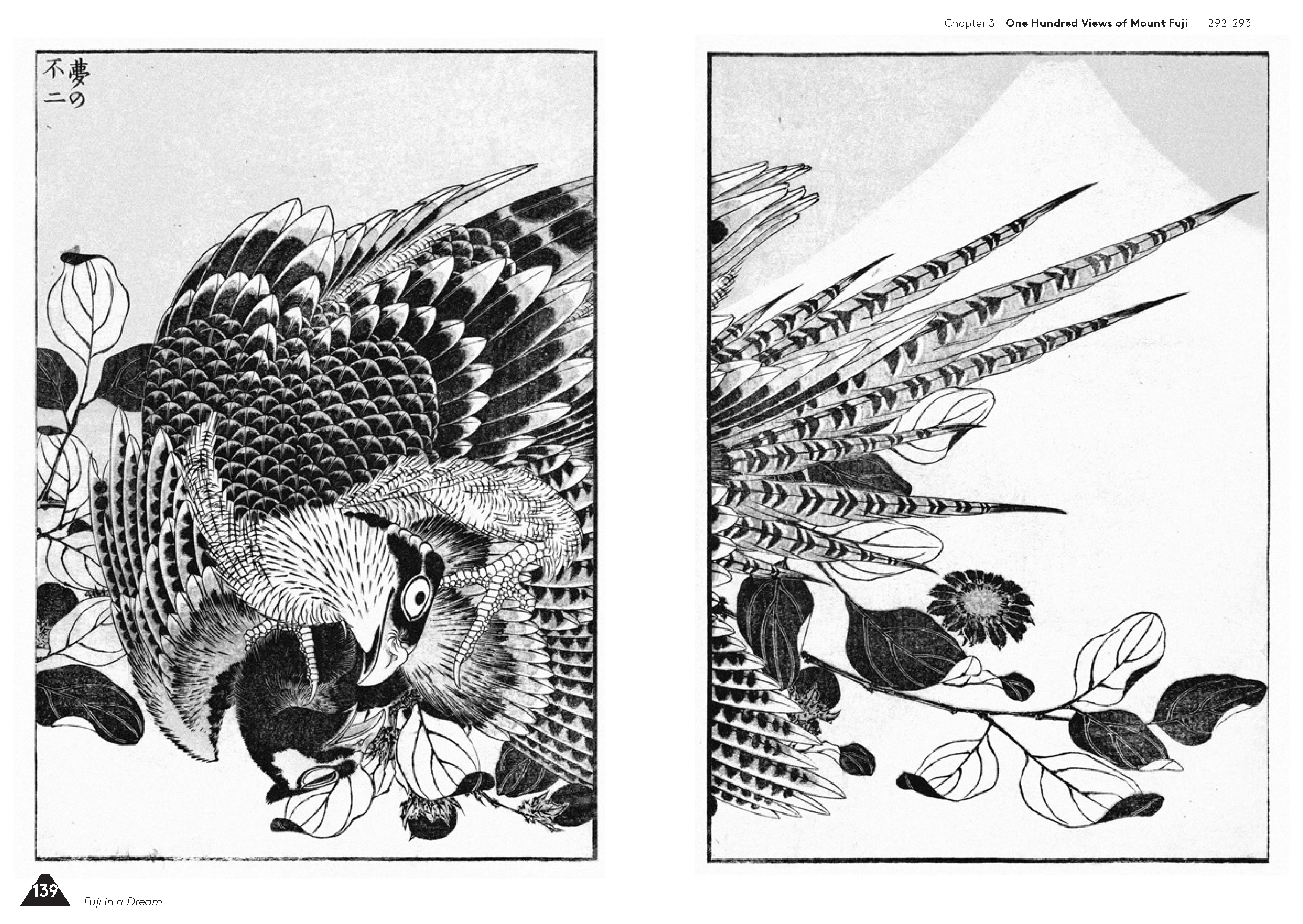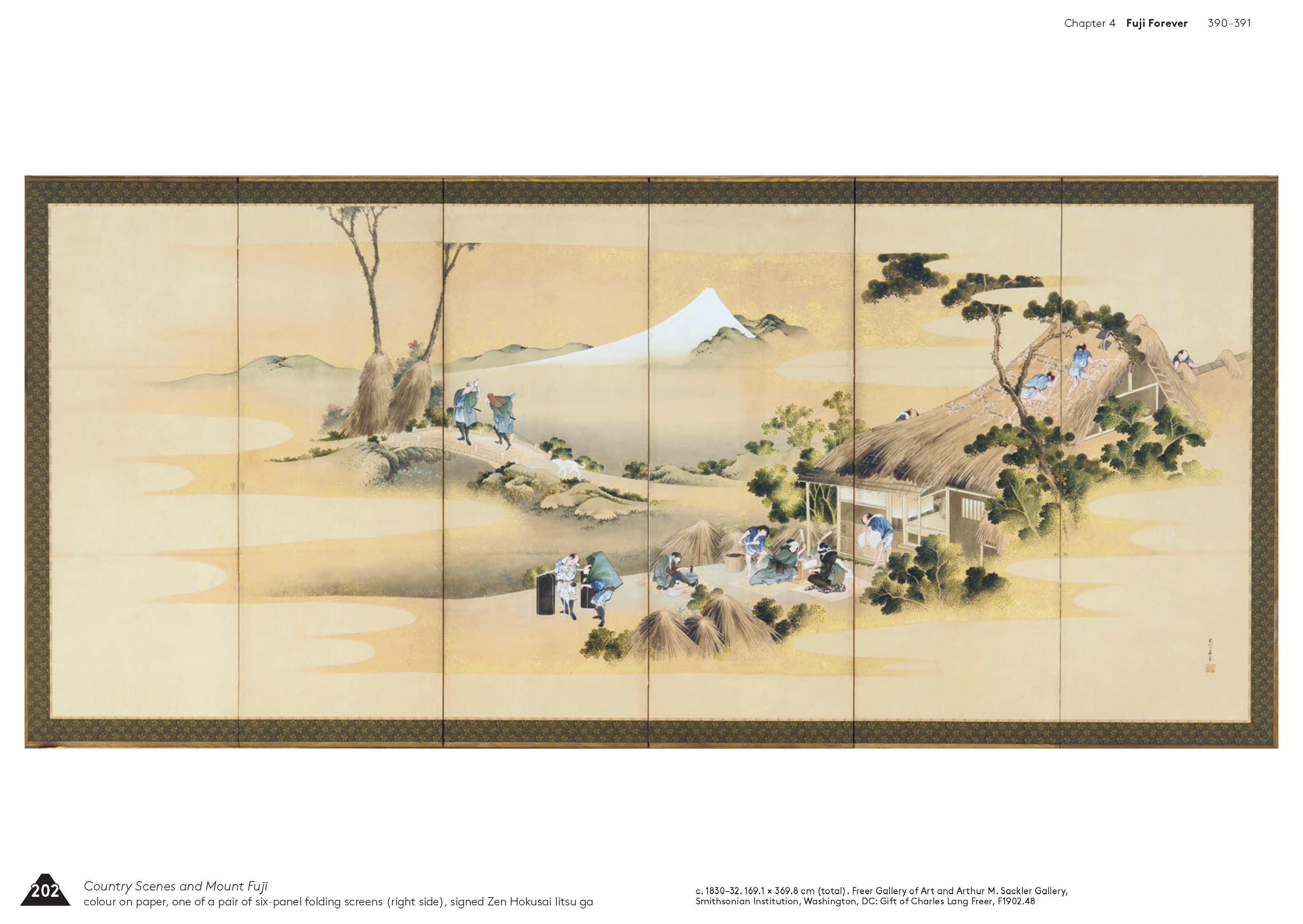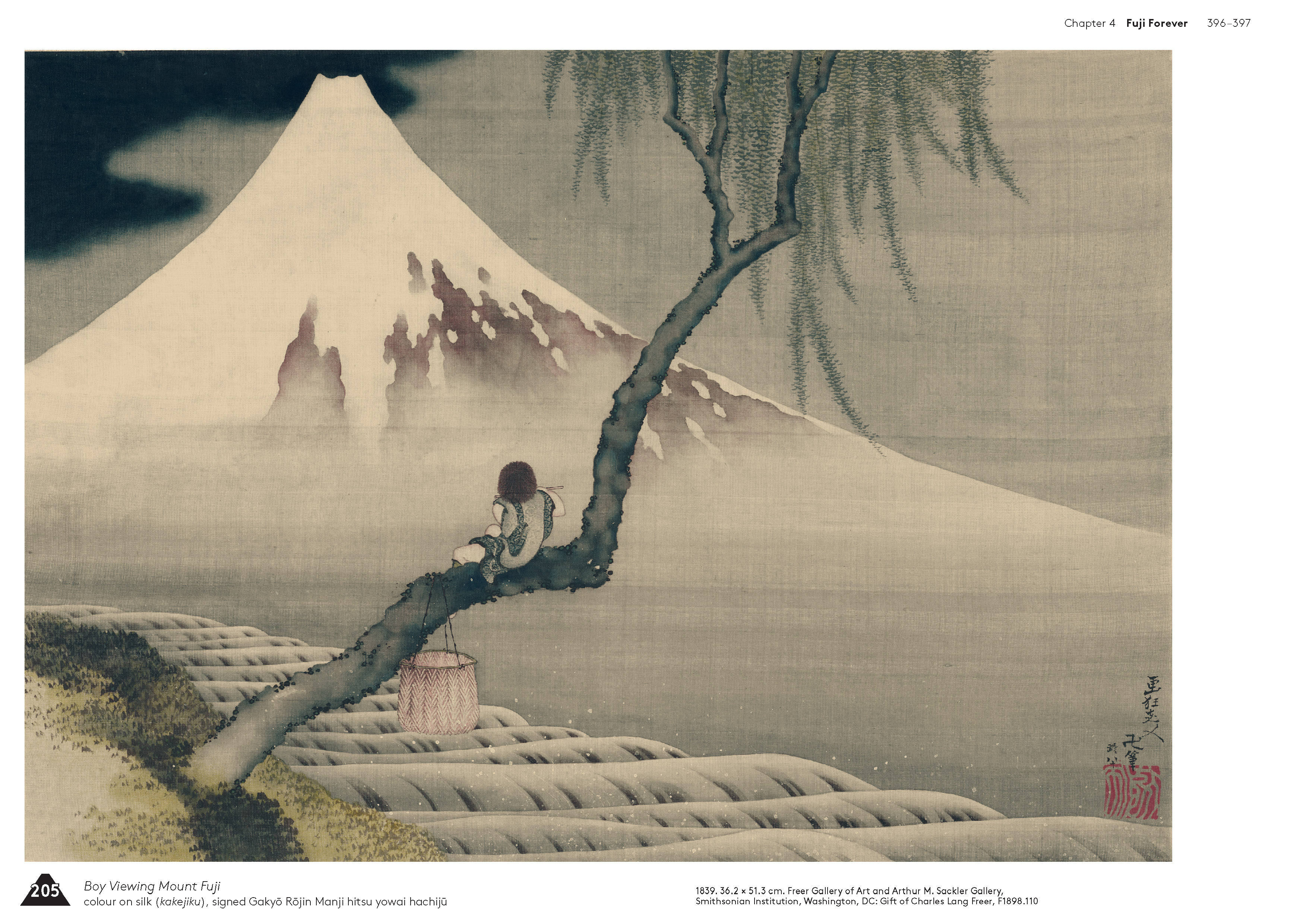Katsushika Hokusai’s Thirty-Six Views of Mount Fuji and the three volumes of his subsequent One Hundred Views of Mount Fuji show his fascination with a single motif: Mount Fuji. Hokusai’s near-obsession with Fuji was part of his hankering after artistic immortality. In Buddhist and Daoist tradition, this mountain was thought to hold the secret to eternal life, as one popular interpretation of its name suggests: fu-shi (“not death”).
Thirty-Six Views of Mount Fuji was produced from 1830 to 1832, when Hokusai was in his seventies and at the height of his career. Among the prints are three of the artist’s most famous: The Great Wave of Kanagawa; Fine Wind, Clear Morning; and Thunderstorm Beneath the Summit. By the time he created his second great tribute to Mount Fuji, three volumes comprising One Hundred Views of Mount Fuji, he was using the artist names “Gakyo Rojin” (“old man crazy for painting”) and “Manji” (“ten thousand things” or “everything”). Contrasting the mountain’s steadfastness and solidity with the changing world around it, Hokusai depicts Fuji through different seasons, weather conditions, and settings, and in so doing communicates an important message: while life changes, Fuji stands still.
Including all illustrations from these two masterful series, Hokusai’s Fuji also features many of Hokusai’s earlier renditions of the mountain, as well as later paintings. In this way, through Mount Fuji, this volume traces a history of Hokusai’s oeuvre.
Contributors
Katsushika Hokusai
Author
Katsushika Hokusai (1760-1849) was a Japanese artist, ukiyo-e painter, and printmaker of the Edo period.
Kyoko Wada
Edited By
Kyoko Wada is an art writer, critic, and historian of Japanese culture.


